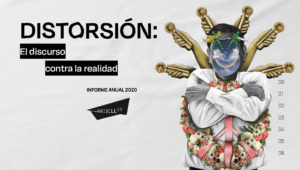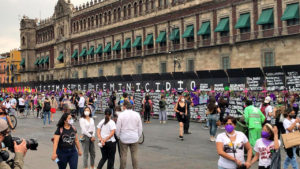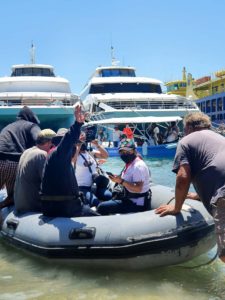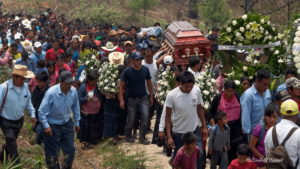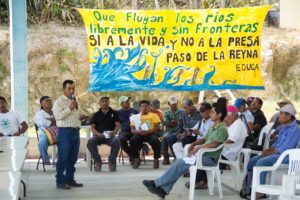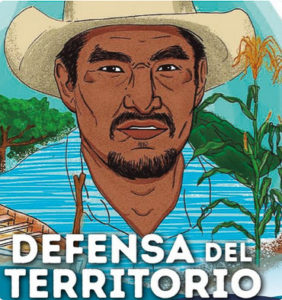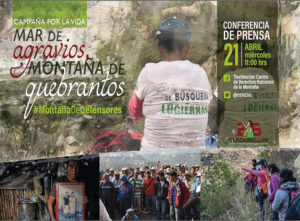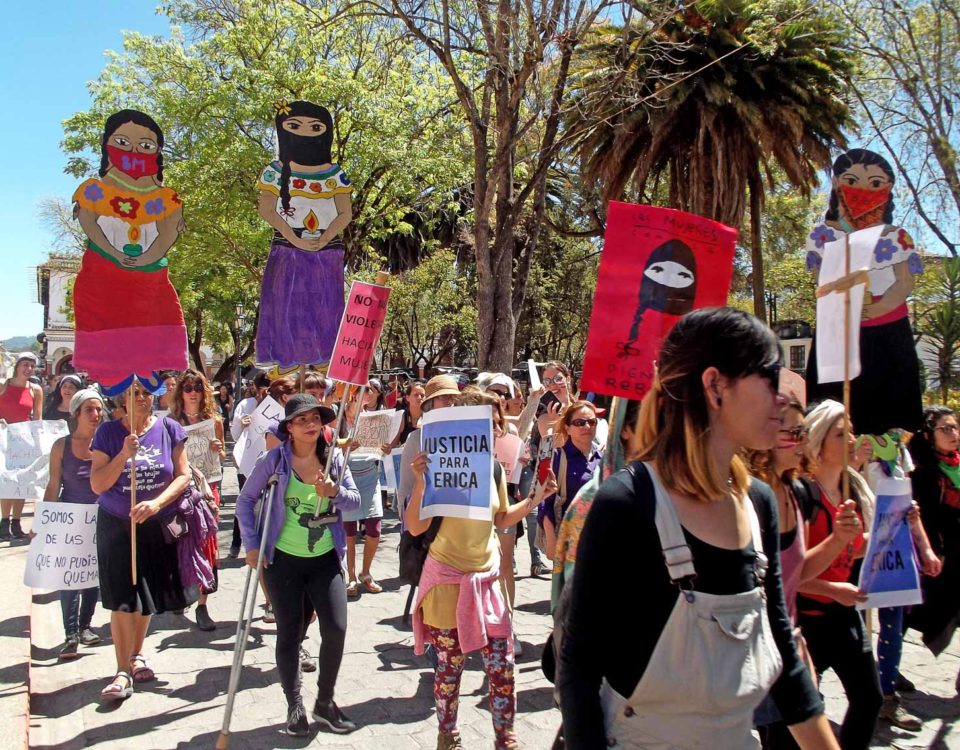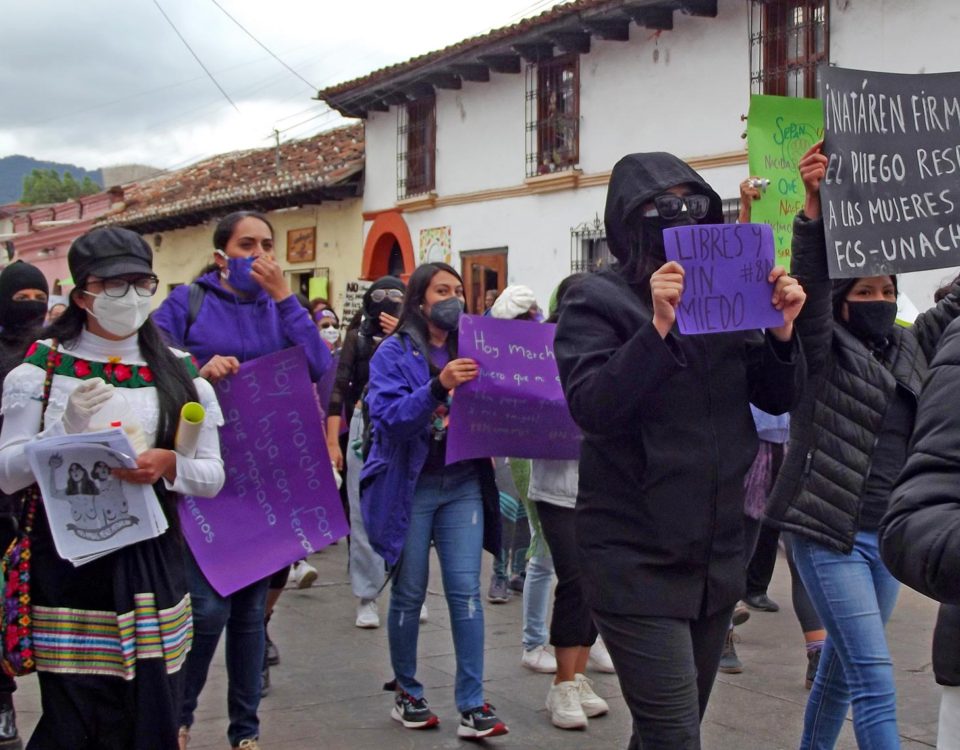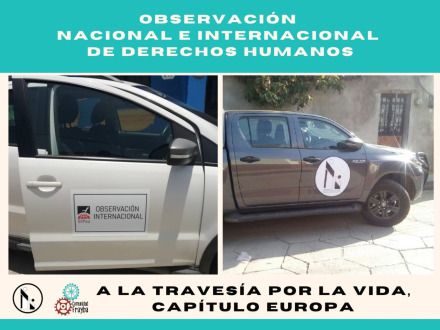
National and International Observation for Journey for Life, Europe Chapter
27/04/2021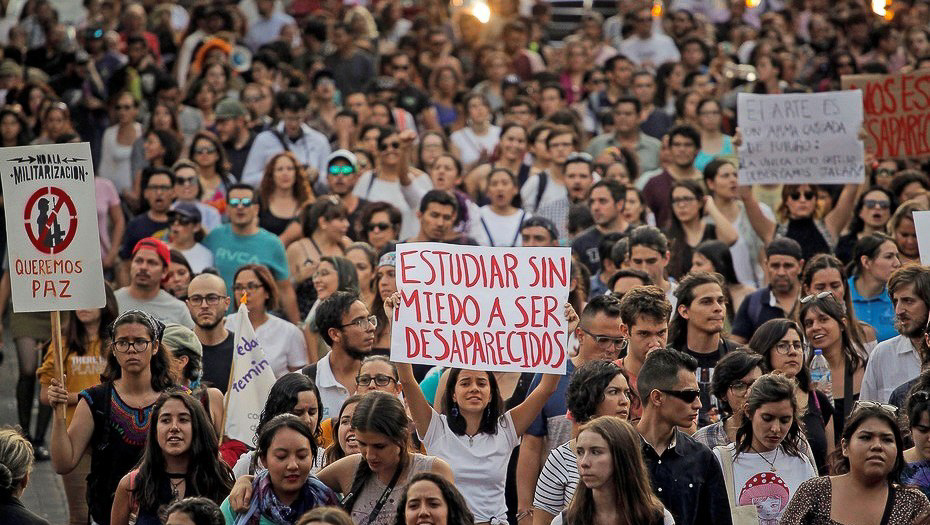
FOCUS: Youth in Mexico – an approach to their perspectives and opinions
09/06/2021
O n June 6th, elections will be held in Mexico in which 500 councils and more than 20,300 local offices will be decided, including 15 governorships. They will be held in the midst of the COVID-19 pandemic. One year after the start of the health emergency, the number of infections exceeded 2,500,000 cases and more than 220,000 people have died. Although the official figures have been declining and vaccination has been advancing, the health emergency continues.
Another omnipresent feature of this electoral process is political violence. By mid-May, 563 attacks against politicians and candidates had already been documented. 83 of these were murdered (63 of whom were from a party other than the ruling party in their states), according to the Etellekt consultancy. The penetration of organized crime in the campaigns is pointed out as one of the factors of such high rates of violence, but it is not the only one. These elections are “midterm”, coinciding with the middle of the six-year term of Andres Manuel Lopez Obrador (AMLO) of the National Regeneration Movement Party (MORENA), and will be a factor in defining the continuity of his project called the Fourth Transformation. There is a great dispute between the different political sectors for or against it.
In elements of analysis, the organization Services for an Alternative Education (EDUCA) stated in a bulletin: “The debate that exists is whether Morena has really pushed the changes that the country demands. There is a well-founded doubt as to whether what we are facing is really a transformation of public life. On the one hand, MORENA has hit some sectors that enjoyed great privileges in the past: a sector of the business community, the press and the media, the “golden bureaucracy”; actions of vital importance have been promoted to benefit the impoverished of this country, such as the increase in the minimum wage, support for young people, people with disabilities and the elderly, and some of its social programs. However, on the other hand, (…) the armed forces have been empowered, social movements such as the environmentalist and women’s movements have been confronted, institutions such as the CNDH (National Human Rights Commission), the TEPJF have been co-opted (Electoral Court of the Federal Judicial Power) and the Judicial Power. Civil society organizations, independent journalists and human rights defenders, who have been described as “conservatives” by the National Palace, are attacked.”
Human rights defenders and communicators: vulnerability
Mexico ranks fourth among the deadliest countries in the world for human rights defenders. In 2020, 19 defenders were killed. It has been pointed out that one of the vulnerability factors arises from questions from the President himself. An example of this, in March, President Lopez Obrador stated that “in previous governments massacres were allowed and human rights defenders of the so-called civil society remained silent in the face of the massacres, including UN organizations and OAS human rights defenders.” Civil organizations supported the actions of the UNHCHR and the Inter-American Commission on Human Rights (IACHR), asking that their work be respected.
Also in March, AMLO claimed that the organization in favor of freedom of expression Article 19 “is supported by foreigners, all the people who have to do with Article 19 belong to the conservative movement that are against us.” In this same framework, he criticized the United States for expressing its views on human rights violations in Mexico, including attacks on journalists in the annual report of the State Department in which it is stated that “although Mexican journalists enjoy freedom to criticize the government, the President publicly discredits them, which has caused communicators to receive attacks and threats on social networks.” In 2020, 692 attacks on journalists and the media were registered.
In the face of direct allegations, Article 19 condemned that Lopez Obrador intended to “discredit and disqualify us without any support”, by stating that the organization has international funding, which is public. It questioned that since he assumed power, the President makes use of “this distorted exercise of the right of reply”, using it “for disqualification and what it generates is an inhibitory effect.” In turn, more than 160 civil organizations and journalists expressed their support for the work of Article 19. “The president’s remarks against civil society organizations, the media, communicators and journalists contribute to the existing polarization in the country, and the situation of vulnerability in which they find themselves”, they pointed out.
8M: thousands of women march to demand a life free of violence
On March 8th, within the framework of International Women’s Day and despite the pandemic, thousands of Mexican women marched in various states of the Republic to demand a life free of violence. These demonstrations occurred at a time of disagreement with the AMLO administration when he still declared in his previous morning conference that feminist movements are “groups manipulated by conservatives and their demands are political attacks” (see article).
Notably, on the same day, the Senate committees approved, among others, removing the Attorney General’s Office (FGR) from the National System to Prevent, Attend, Punish and Eradicate Violence against Women, in order to “preserve its autonomy.”
On a positive note, the Olimpia Law was approved in April, which establishes provisions to sanction digital violence. Feminist collectives from at least ten states, present outside the venue, burst into jubilation upon hearing the decision.
Reform of the FGR: a setback in human rights matters
In April, the Senate approved the bill to issue the new Law of the Attorney General’s Office (FGR). The Agustin ProDH Center warned that “to the concern of broad sectors of civil society, groups of family members and academics and experts in human rights, serious setbacks materialized.” “It eliminates the rights of the victims, cancels instances of accountability, erodes controls for the appointment of prosecutors and disassociates the FGR from inter-institutional coordination mechanisms (…) using autonomy as a pretext”, it denounced. Many groups of families of victims, particularly those of the disappeared, have also spoken out against the ruling and denounce having been left out of the debate.
The Law was even criticized by high-level officials. The head of the National Search Commission, Karla Quintana, noted that “what it does is limit and deny the rights of the victims (…). It denies the power to take on cases and even complicates it so that it is not obliged to do so. It sets us back decades in what has been achieved in the area of human rights. In general, the issue of autonomy in the law shows a complete misunderstanding of the term, which I don’t think is a mistake, it is completely intentional.”
Indigenous peoples: between attention and contradictions
In April, the Law of Consultation with Indigenous and Afro-Mexican Peoples and Communities was approved, which should allow these sectors to “express their opinion on administrative and legislative projects that could affect (them).” However, it was also endorsed that “there will be no increase in the budget for this issue in the current fiscal year.” In fact, it prevents the implementation of the law that some opponents described as “simulation.”
In May, the President traveled to Quintana Roo, where he offered his apologies to the Mayan peoples for the historical grievances they have suffered. “We are here asking for forgiveness and stating that we will never forget the inhabitants of deep Mexico”, he added.
However, in an open letter, the group of Mayan historians Chuunt’aan Maya, from Yucatan, declared that “there are many things that continue: they continue to cut down the mountains to plant them with soy, they continue to take away the mountains and cenotes that we have defended.” This “request for forgiveness may be the opportunity to sit down and talk”, they added. For their part, indigenous groups in Yucatan, organizers of the U Jeets’el le ki’ki ’kuxtal (For a Dignified Life) campaign, rejected the apology, considering that it goes hand in hand with dispossession and human rights violations. “Whoever asks for forgiveness perpetuates racism, discrimination and contempt”, they claimed. They argued that colonization persists, “with more violence and intensity each day”, with the imposition of megaprojects.
MEGAPROJECTS: Conflicting visions
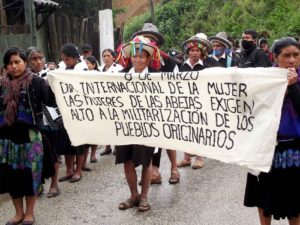
Stop the militarization of Indigenous peoples, a demand prior to the direct participation of the Army in megaprojects © SIPAZ
In February, three new provisional suspensions were granted for Section three of the Maya Train. The injunction claims were made against the Environmental Impact Report (EIR), granted to the National Fund for the Promotion of Tourism (FONATUR), and were presented by the Assembly of Defenders of the Mayan Territory “Múuch ‘Xíinbal” and the Chuun t’aan Maya Collective. They argued the violation of the right to information, to adequate participation, and the omission of a comprehensive regional environmental assessment, not divided into sections. FONATUR assured that these demands have a political interest, and that “they were conceived, written and presented by civil society organizations” that do not represent indigenous peoples.
In March, FONATUR announced that the Ministry of Defense will be in charge of the operation of “the entire Maya Train, and not just sections 1, 6 and 7 as initially planned.” This announcement assumes that “all profits will go directly to the Army” to finance the pensions of sailors and soldiers and to “guarantee security in the region.” With this decision, an “unprecedented” support is given to an institution “that accumulates more power each day and perpetuates it as an economic and political agent for subsequent governments”, security analyst Alejandro Hope said.
EZLN begins “Journey for Life – Europe Chapter”
Seven Zapatistas form the maritime section of the delegation that will visit Europe. Four are women, two are men and one is transgender. 4, 2, 1. Squadron 421. In April, the maritime commission began its “Journey for Life – Europe Chapter”, with several farewell acts in the Zapatista territories in Chiapas. “The delegation received the mandate from the Zapatista peoples to take our thoughts, that is, our hearts far away. Not only to embrace those who rebel and resist on the European continent, but also to listen and learn from their stories, geographies, calendars and ways”, stated the Zapatista Army of National Liberation (EZLN).
On May 2nd, Squadron 421 left Isla Mujeres, Quintana Roo, in La Montaña, the ship that will take them to Europe on a six to eight-week trip. They are expected to arrive in Madrid on August 13th, the date on which it will be 500 years since the fall of Tenochtitlan, capital of the Aztec empire at the hands of the Spanish. The objective is to complete the reverse journey to that of the conquistadores and “fight for life, organize, defend, but together”, said Insurgent Sub-commander Moises. The EZLN announced activities in 30 countries in Europe.
Migration: Change of US President makes no significant difference to access to rights for migrants
In March, the Collective for the Observation and Monitoring of Human Rights in Southeast Mexico expressed its concern and rejection of “the deployment of migratory containment operations on the southern border.” It also recalled that these measures “were made known in the context of negotiations with the United States to access vaccines against COVID-19.”
Although the organizations recognized “positive signs from the United States government aimed at re-establishing and improving the asylum system and the intention was announced to develop a strategy to attack the causes of Central American migration and to strengthen access to international protection at regional level”, “the specific details and to what extent the government will carry out actual consultations with civil society organizations in the region are not yet known.” They denounced that to date “in practice, the focus of Honduras, El Salvador, Guatemala, and Mexico towards forced displacement continues to be one of national security.”
In April, it was announced that the United States, Mexico, Honduras and Guatemala reached an agreement to reinforce their borders, which will involve a deployment of 10,000 officials including the National Guard on the southern border of Mexico.
CHIAPAS: A highly conflictive pre-electoral context
In March, given the forthcoming elections, the Bishops of Chiapas addressed the citizens, regardless of their religious convictions, to encourage them to vote in a responsible, informed and critical way, always thinking about the common good of society. They found that “throughout the last electoral processes, divisions and confrontations have been generated, which have resulted in violence and death.” They regretted that in political parties “the search to satisfy personal or group interests prevails.” They were also concerned that “some power groups, linked to criminal activities, infiltrate political parties or coerce them by financing candidacies in order to enjoy protection and impunity.”
At the end of March, the registration of candidates for municipal presidents, federal and local deputies, as well as members of the Chiapas city council, concluded. MORENA militants in different municipalities protested the imposition of candidates from other parties, especially the Green Ecologist Party of Mexico, and accused MORENA state leaders of “tampering with the entire candidate selection process”, “leaving out the true militants.”
In the midst of this dispute, there were several hot spots with little or no attention from the authorities currently focused on the electoral contest. The first example of this, the old agrarian conflict between Aldama and Santa Martha, Chenalho, which has already left more than 20 dead on both sides and several wounded, remains unresolved. Although peace agreements were signed in 2019 and 2020, the armed aggression has not ended. In April, the Inter-American Commission on Human Rights (IACHR) reported that it had granted precautionary measures in favor of 12 communities in Aldama. In May, a new death was reported in Aldama, which occurred while elements of the National Guard and the state police were in the same community as the deceased.
In another part of the state, in May it was reported that the agrarian dispute over the possession of thousands of hectares of land in the municipality of Venustiano Carranza between members of the Emiliano Zapata Peasant Organization, OCEZ – Casa del Pueblo and the San Bartolome de Los Llanos worsened again, leaving at least two dead. Both groups are claiming that they were attacked by the other. Given the situation, the Diocese of San Cristobal de Las Casas and the Fray Bartolome de Las Casas Center for Human Rights (Frayba) made an “urgent call for Peace and dialogue.”
In April, two members of Frayba were kidnapped while they were traveling to Palenque. After 40 hours of detention, they were released. According to news reports, the retention stemmed from a car accident in which the vehicle in which they were traveling was involved. Frayba denied this information and expressed concern that these versions “minimize the context of violence in the region and consequently the high risk that human rights defenders experience, misrepresenting the attacks to which we are constantly targeted, passing them off as acts unrelated to our work.”
OAXACA: electoral process marked by violence
At the beginning of May, there were 15 investigation files for electoral violence, six of them for political violence based on gender. Two of the most serious cases were the murder of Ivonne Gallegos, an independent candidate for the municipal presidency of Ocotlan de Morelos; and the case of the disappearance of Claudia Uruchurtu, while she was holding a protest against the municipal president of Asuncion Nochixtlan who was seeking re-election.
Another source of conflict continues to be the project of the Isthmus of Tehuantepec Inter-Oceanic Corridor (CIIT). This program includes, in addition to the renovation of railways and the modernization of Salina Cruz Port, the construction of industrial parks. In May, the information stage of the indigenous consultation regarding the installation of said “development poles” began in San Blas Atempa and Santa Maria Mixtequilla. In Mixtequilla, those present at the consultation, the majority community members, questioned the “lack of information” and the “unfair and advantageous” way in which the government monopolized the lands. There were voices for and against, mostly, questioning the “rush” to install the assembly. For their part, community members from Puente Madera, the municipal agency of San Blas Atempa, blocked the Pan-American federal highway in rejection of the consultation. Shortly after, President Lopez Obrador announced that the Interoceanic Corridor will be administered by the Secretariat of the Navy-Navy of Mexico (SEMAR).
In terms of land and territory, another focus of concern has been the municipality of Santiago Jamiltepec, a benchmark for peaceful resistance against hydroelectric megaprojects. In March, Jaime Jimenez Ruiz, a former municipal agent from Paso de la Reyna and part of the movement for the defense of the Rio Verde, was assassinated. With this case, the number of murders in 2021 against social players linked to said defense rises to five. The organization Services for an Alternative Education (EDUCA) warned about “cacique authoritarianism and impunity” that are experienced in Paso de la Reyna. “This wave of violence grows in tandem with the total ineffectiveness of state and federal authorities”, it said.
On another note, in February, Oaxaca Consortium presented a report to the UN Committee for the Elimination of All Forms of Discrimination against Women (CEDAW) on the situation in Oaxaca. It warned about the “simulation that exists around public gender policy.” This, it stated, when the budget granted to the State to implement actions on this issue was not assigned. In addition, the State Victims Commission should have been installed in 2017, but does not yet exist. It also spoke of the total ignorance on the matter by the Oaxaca Public Security Secretariat (SSPO). In addition to this, Consorcio provided data that account for the little use of the criminal term of femicide, as well as the difference in registered cases.
GUERRERO: Exponential increase in violence
In April, La Montaña “Tlachinollan” Human Rights Center launched the “Campaign for Life: Sea of Grievances, Mountain of Ruptures”, to denounce “the exponential increase in violence carried out by organized crime groups that act in collusion with the security forces and other local authorities.” In this context, it pointed out that since the beginning of the pandemic, it has documented 20 cases of femicides, 20 of sexual violence, 80 of physical violence and 85 of economic violence and that “between 2007 and 2018 the number of complaints of forced disappearance multiplied by 20 (…), without there being a single conviction in these.”
Tlachinollan also declared that “Guerrero faces a serious human rights crisis that has deepened with the COVID-19 health emergency. The presence of organized crime, structural violence and impunity has resulted in thousands of victims of human rights violations. (…) In 2018 there were at least 13 organized crime groups that dispute territorial control for the planting and transfer of drugs in the state. This presence of organized crime has triggered an increase in homicides, kidnappings and extortion.”
Reporting puts whoever does it at risk. In April, the National Human Rights Commission (CNDH) distanced itself from statements of the former governor, Angel Aguirre Rivero, in relation to the member of Tlachinollan, Vidulfo Rosales Sierra, also a lawyer for the parents of the 43 Ayotzinapa student teachers who disappeared in 2014, when the former governor accused the defender of being “one of the main promoters of MORENA’s campaign in Guerrero.” “It constitutes a direct attack on the defense of human rights, and shows a systematic pattern (…) to discredit the work of the defender (…), who has been repeatedly subjected to attacks and threats”, the CNDH noted.
In May, the Governing Board of the Mechanism for the Protection of Human Rights Defenders and Journalists expressed concern “at the conditions faced for the exercise of the defense of human rights and journalism.” It explained that “throughout the month of April there were various risk incidents that range from the blocking of communication channels, stalking, harassment by authorities, digital harassment, harassment when covering news stories, to threats against physical integrity and the freed exercise of their activities.”
Likewise, in May, a Civil Observation Mission in La Montaña declared that it had noticed “a serious lack of attention on the part of public institutions.” In addition, it asserted that the problems have deepened during the pandemic, “due to the closure of public institutions, the reduction in staff and budget of the various public agencies that attend to these problems, as well as the confinement measures themselves that have exacerbated the gender violence.”
For the rest, the pre-electoral context has been marked by controversy. MORENA’s candidate, Evelyn Salgado Pineam is the daughter of who was initially the candidate for the party in power, who after much local and national pressure had to withdraw after having two complaints of rape against him. In addition, she is married to Alfredo Alonso, son of Joaquin Alonso Piedra, El Abulón, financial operator of the Beltran Leyva cartel in Acapulco, arrested in 2016.

